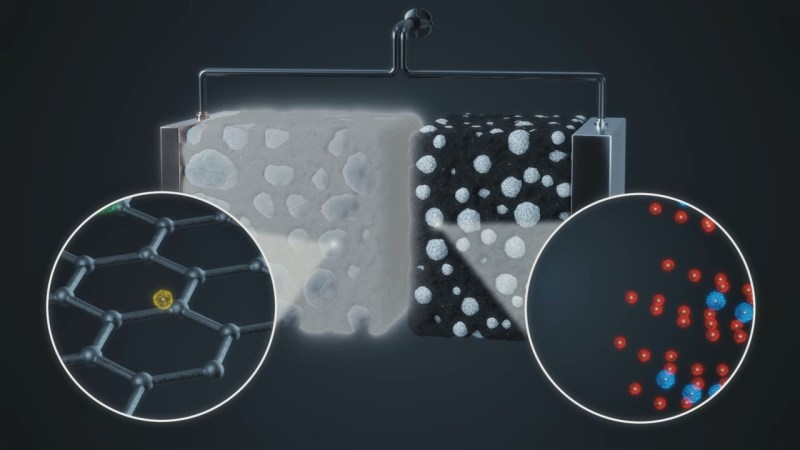Li-ion Battery Low-Level Intricacies Explained Excellently

There’s a lot of magic in Lithium-ion batteries that we typically take for granted and don’t dig deeper into. Why is the typical full charge voltage 4.2 V and not the more convenient 5 V, why is CC/CV charging needed, and what’s up with all the fires? [The Limiting Factor] released a video that explains the low-level workings of Lithium-ion batteries in a very accessible way – specifically going into ion and electron ion exchange happening between the anode and the cathode, during both the charge and the discharge cycle. The video’s great illustrative power comes from an impressively sized investment of animation, script-writing and narration work – [The Limiting Factor] describes the effort as “16 months of animation design”, and this is no typical “whiteboard sketch” explainer video.
This is 16 minutes of pay-full-attention learning material that will have you glued to your screen, and the only reason it doesn’t explain every single thing about Lithium-ion batteries is because it’s that extensive of a topic, it would require a video series when done in a professional format like this. Instead, this is an excellent intro to help you build a core of solid understanding when it comes to Li-ion battery internals, elaborating on everything that’s relevant to the level being explored – be it the SEI layer and the organic additives, or the nitty-gritty of the ion and electron exchange specifics. We can’t help but hope that more videos like this one are coming soon (or as soon as they realistically can), expanding our understanding of all the other levels of a Li-ion battery cell.
Last video from [The Limiting Factor] was an 1-hour banger breaking down all the decisions made in a Tesla Battery Day presentation in similarly impressive level of detail, and we appreciate them making a general-purpose insight video – lately, it’s become clear we need to go more in-depth on such topics. This year, we’ve covered a great comparison between supercapacitors and batteries and suitable applications for each one of those, as well as explained the automakers’ reluctance to make their own battery cells. In 2020, we did a breakdown of alternate battery chemistries that aim to replace Li-ion in some of its important applications, so if this topic catches your attention, check those articles out, too!
Thanks to [Kelvin Green] for the tip!
Post a Comment